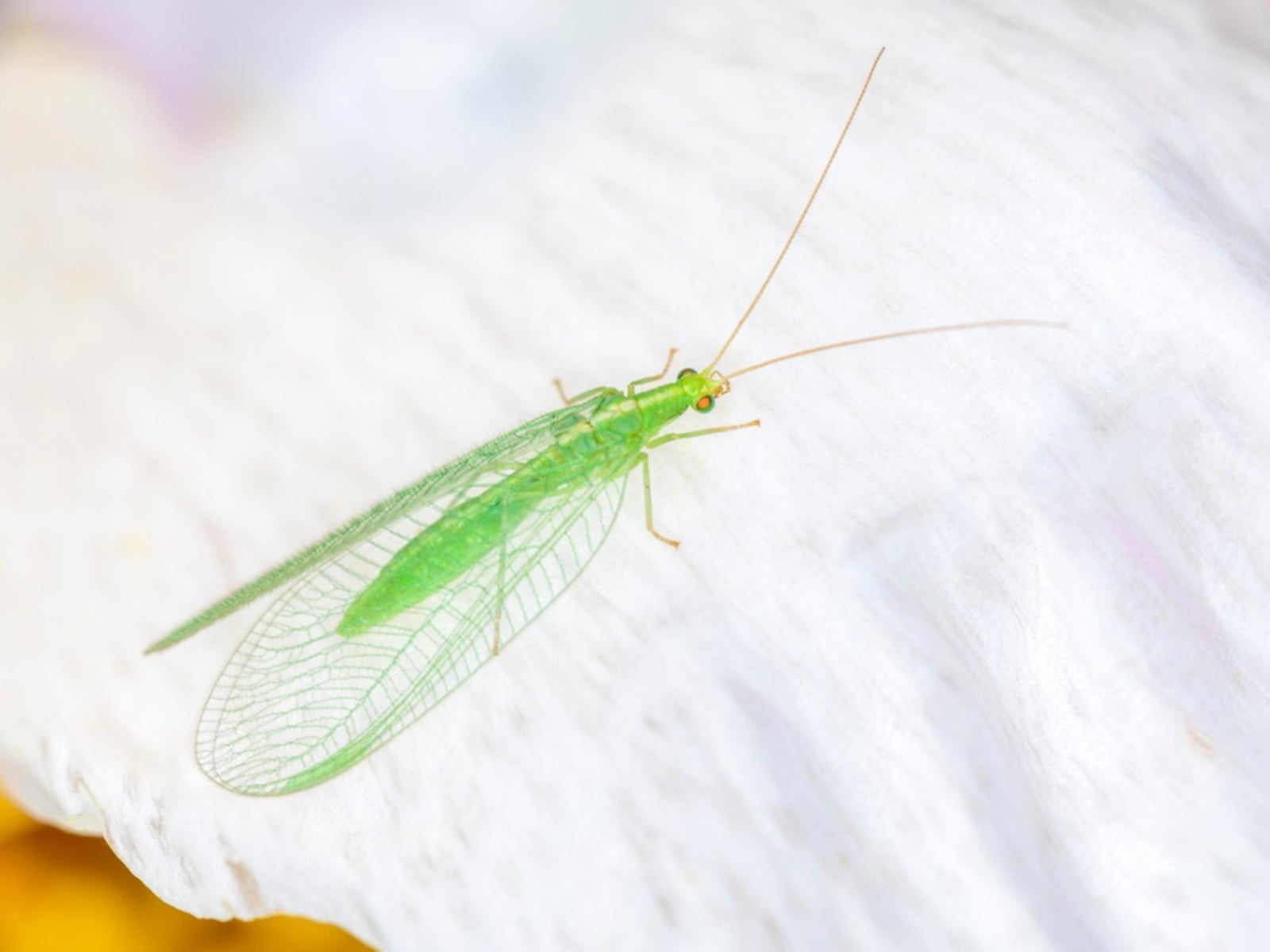10 Beneficial Insects You Should Invite Into Your Garden – To Prevent Pests & Help Plants
Roll out your garden’s welcome mat for 10 of the most beneficial insects and bugs. They are expert pollinators and some even provide pest control.


10 Beneficial Insects You Should Invite Into Your Garden
As gardeners we are often on the hunt for the bad bugs, but what about the beneficial insects? Beneficial bugs are often those that we count as annoyances. They should be celebrated and encouraged to come into our gardens to do their good work. Even wasps are beneficial garden insects that can keep down populations of annoying bugs like aphids.
Beneficial garden bugs can be encouraged to make our yards their homes by supplying a variety of attractive food, habitats, and nesting sites.
What Are Beneficial Insects?
Beneficial insects are bugs that help pollinate our plants, keep populations of pests low, and add variety and diversity to our gardens. The best garden bugs won’t be an annoyance during our picnics, but even those can have their good points. Ants have an important role in the ecosystem as cleaners, while insects in the Vepidae family, like wasps and hornets, pollinate and provide organic pest control.
Some beneficial garden insects are available commercially so you can purchase them and set them free in your landscape to help in a host of ways.
Most Beneficial Insects for the Garden
The more commonly known beneficial garden bugs are bees, praying mantis, and ladybugs, but many others can help keep a pest-free garden or enhance our crop outputs. While not technically insects, even our 8 legged friends, the spiders, are masters of biological control when it comes to insect pests. Predatory insects are one of the better-known types of beneficial bugs, but there are also parasitic types that insert their eggs into a live insect host or into a host’s eggs or larvae. Predatory insects will actively seek and eat the bad bugs, while parasitic insect fatalities occur after the eggs have hatched.
- Ladybugs: Predatory insects who prey upon soft-bodied insects. One of their larvae can eat 10-50 aphids per day. Ladybugs are very recognizable beetles with orange-red bodies decorated with black spots.
- Praying Mantis: These insects can rotate their neck 180 degrees, ideal for spotting their favorite food source. They are voracious and ferocious killers but they tend to be cannibalistic which limits the number of mantis in your garden.
- Lacewings: Very recognizable insects due to their delicate, lacy, see-through wings, their larvae are known as aphid lions, and feast on those pests and other soft-bodied insects. The adult lacewing feeds on pollen and nectar and is not useful for biological pest control. However, they are necessary to provide the hook-jawed larvae that can help diminish insect pests.
- Syrphid Flies: The adults in this group feed upon nectar and help pollinate our plants. The larvae, however, are fierce pest killers. Aphids are one of the favored pests for the brownish maggots.
- Wheel Bugs: These are quite common in the garden. They have a chicken comb feature on their head and brownish-gray bodies. Both adults and larvae are deadly to bad bugs, but we should also be cautious. Their bite is said to be worse than a hornet sting.
- Minute Pirate Bugs: Both the adults and nymphs of these insects are sucking insects. They insert a beak-like appendage into insect prey and suck them dry.
- Damsel Bugs: Brownish, long-bodied insects, wingless as nymphs, but winged as adults. These are another sucking bug that attacks soft-bodied insect pests.
- Collops Beetles: They may be red or blue, with one species called the Red Cross Beetle due to its markings. They crawl around in detritus on the ground and feast on a host of insects.
- Paper Wasps: You don’t want them to live at your front door, but these predators are deadly to many species of caterpillar.
- Parasitic Wasps: These are generally tiny and there are several species of these parasitic wasps. They will lay their eggs inside other insects, often moths.
How to Attract Beneficial Insects
Encouraging beneficial bugs is easy in a diverse garden. Planting a large variety of flowers is one of the most attractive ways to invite good bugs to your garden. The nectar and pollen will bring in many types of predatory or parasitic insects. Perennials, annuals, and herb flowers are all helpful in increasing the population of good bugs.
Insects need cover in the form of foliage and ground debris. They also need other hiding places like rotten logs, wood chips, or handmade or purchased bug hotels. Avoid using pesticides in the garden which can kill our good bugs along with the bad insects.
Sign up for the Gardening Know How newsletter today and receive a free copy of our e-book "How to Grow Delicious Tomatoes".
FREQUENTLY ASKED QUESTIONS
What is the most useful insect?
In my opinion, honeybees are the most useful insect. Without them, we would not have food to eat or plants and flowers to enjoy
Do beneficial insects eat plants?
Some beneficial insects will dine on plants, primarily in the larval stage. But they usually do little lasting harm, especially if your plants are kept healthy. And once they become predatory, their benefits will outlast any minimal damage to your plants.

Bonnie Grant is a professional landscaper with a Certification in Urban Gardening. She has been gardening and writing for 15 years. A former professional chef, she has a passion for edible landscaping.